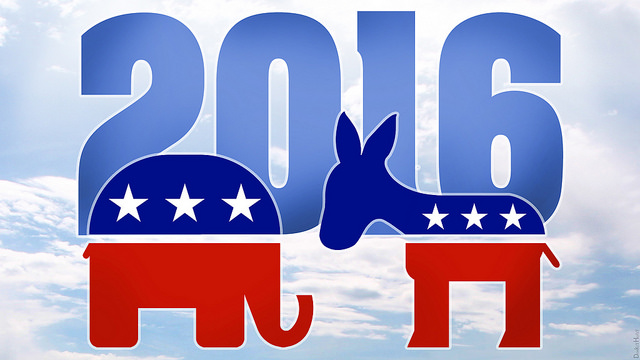As the race to the White House continues for presidential hopefuls, claims made by candidates of both the Republican and Democratic parties grow increasingly aggressive and personal.
Ben Carson, the former neurosurgeon and Republican candidate, announced his departure from the race with a speech at the Conservative Political Action Conference, bringing the Republican race down to just three candidates as opposed to the original thirteen following Marco Rubio’s dropout after losing Florida to Donald Trump. Tension between remaining survivors continues to rise, with Donald Trump, Ted Cruz, and John Kasich remaining.
Former New York City Mayor Michael Bloomberg announced Monday he will not enter the 2016 presidential race for fear his candidacy could tilt the election to Republican Donald Trump or Ted Cruz. “When I look at the data, it’s clear to me that if I entered the race, I could not win. I believe I could win a number of diverse states — but not enough to win the 270 Electoral College votes necessary to win the presidency,” Bloomberg wrote in a column in Bloomberg View, his opinion site.
As Trump’s success continues, however, many Republicans begin to focus on an ‘anybody but Trump’ reality. Republican strategist Stuart Stevens said: “I think people other than Donald Trump winning delegates is the answer, and that is better achieved not through consolidation.” However, with Rubio dropping out and Kasich still an outlier in the contest, Ted Cruz is emerging as the only remaining viable option.
On the Democratic side, progressive Bernie Sanders won his home state of Vermont as well as well several other states. Things are predicted to improve for him as the race leaves the South and moves to states that tend to be more demographically supportive of him—more liberals, and fewer African-American voters. Sanders raised an astounding $42 million in February, the most of any candidate on either side, giving him plenty of funding to continue his campaign.
Hillary Clinton and Bernie Sanders took the stage Sunday for a Democratic debate in Flint, Michigan—a city at the center of a public health crisis because of contaminated tap water.
Clinton said she was “outraged” by the situation. She also stated , “We’re working on helping to fix the pipes, we’re working on helping the kids, we’re working to put people to work. So when I became president, I will make sure every single department is doing all that it can to help with the infrastructure problems and with the human problems.”
Sanders called the situation “unacceptable” and “beyond comprehension.” He said, “We are going to rebuild our crumbling infrastructure, we’re going to rebuild the pipe system, the water system here in Flint, we’re going to make sure that all of those people affected have the health care that they need and that those that were affected also get the educational opportunities that they need.”
Although tension has risen between Sanders and Clinton as the poll gap begins to tighten, they continue to go on record referring to each other as “an ally.”
The New York Times, The Washington Post, and CNN contributed to this post.
Image from Flickr creative commons: DonkeyHotey.












































































































